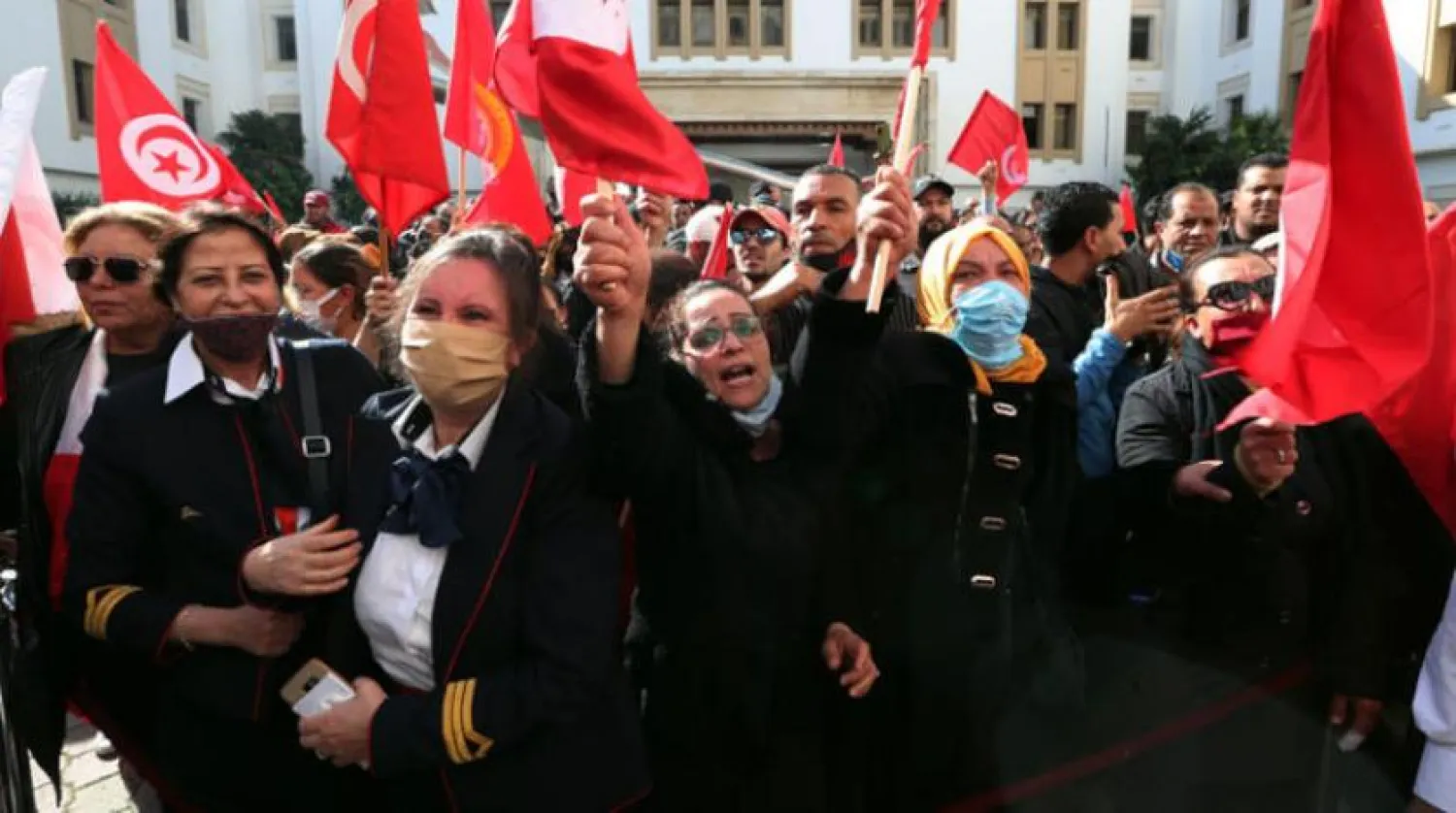Tunisian parliament Speaker Rached Ghannouchi has proposed an initiative in an attempt to overcome the political crisis in the country.
He suggested holding an urgent tripartite meeting with President Kais Saied and Prime Minister Hichem Mechichi as soon as possible to resolve the “constitutional oath” crisis.
He also called on Saied to gather heads of the several parties in the country to exchange visions and advice over the situation and the required decisions, in light of the economic, social, and health crises.
Spokesman of Ennahda Movement Fathi al-Ayadi said Ghannouchi sent a letter to the President urging him to reassure Tunisians and the world.
“Despite the differences among Tunisian political figures and the growing incitement rhetoric, Tunisia remains a country with trustful institutions, and it needs to provide medicine, food, work and security for its people, as well as ensure calm, develop a spirit of solidarity and broaden the circle of national unity,” the letter read.
Meanwhile, a group of opposition parties announced their support for the efforts by national organizations seeking to bridge the gap between Saied and Mechichi.
These efforts aim to develop practical proposals that would enable the country to overcome its crisis, they stressed.
The leaderships of the Republican Party, the People’s Movement, the Democratic Forum for Labor and Liberties party, and the Democratic Current party considered their meetings an attempt to define means out of the multi-faceted crisis Tunisia is going through.
In this regard, Secretary-General of the Republican Party Essam al-Shabbi stressed that they will try to urge a solution to the political crisis.
The Republican Party has begun consulting with the General Labor Union about its role, especially after calling for a national dialogue, presenting its initiative to the head of state, and providing details about the “Panel of the Wise and Mediators,” which will head the dialogue sessions.
Commenting on the steps taken to dissolve the differences between the two heads of the executive authority, analyst Jamel Arfaoui told Asharq Al-Awsat that it won’t be an easy task.
He pointed to the challenges facing the meeting between Mechichi and Saied and the escalation in their political positions and their unwillingness to compromise.
Both have sought to complicate the crisis from the beginning and have had no intention to overcome their differences, he stressed.









